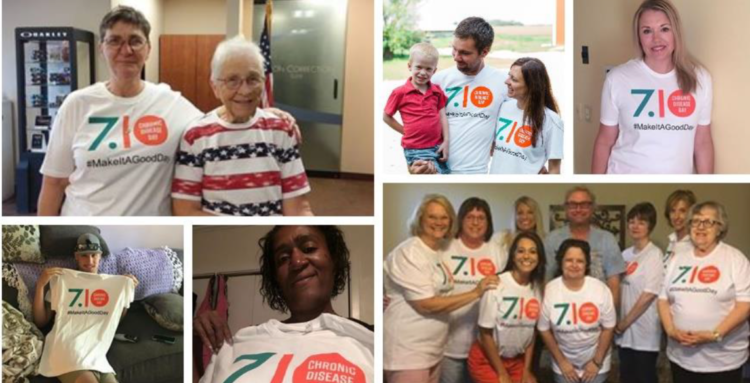It is nearly a guarantee that either you or someone you know is battling a chronic disease. Hundreds of thousands of Americans live with unpreventable and costly chronic and rare conditions. But the deadliest and costliest chronic diseases, such as cardiovascular, stroke, diabetes and cancer, are also the most preventable.
Chronic Disease Day is recognized by local community, state and national government leaders across the country on July 10 to represent the seven out of 10 individuals in the U.S. who succumb to chronic conditions such as all types of cancer, cardiovascular disease, diabetes and other chronic and rare conditions.
On this day each year, we raise awareness on ways to prevent chronic illnesses and support those with unpreventable illness. Together we can reduce individual risk and lower unnecessary healthcare spending. Here are four practices that everyone can adopt to make a difference.

1. Address Stress
Chronic and rare diseases come with a range of visible and invisible symptoms that can impact your self-esteem. Individuals with rare and chronic conditions often must manage fatigue, pain, depression or frustration. It’s important to identify your stressors so that you can take a healthy approach to managing them.
2. Exercise and Proper Nutrition
Getting the right amount of exercise and proper nutrition is key to maintaining a healthy lifestyle. Low-impact and moderate exercise can strengthen body and mind. Find a routine that is right for you and make sure that you are eating healthy foods to fuel your workout.
3. Build Your Support System
Supportive relationships help individuals with chronic illness live longer lives and experience better well-being. Friends and loved ones can give you strength in times of stress or setback and will also make good times better. Consider ways to build and sustain a support system that best fits your lifestyle.
4. Show You Care
Someone you love may have a chronic illness. Whether you check in to let them know you care, read up to better understand their health situation or are just present to listen with empathy, there are many ways to show you care with simple but meaningful gestures.
Image provided by Good Days.

